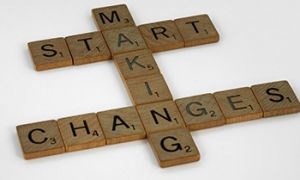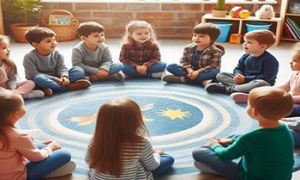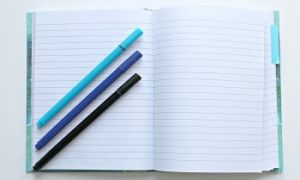

Here's a practical educator cheat sheet tailored for writing summative assessments in early childhood settings—designed to be clear, efficient, and aligned with EYLF outcomes. The following article provides information on Structuring Your Summary, Linking to EYLF Outcomes, Prompts to Get You Started, Expanded Prompt Starters by Theme, EYLF Outcome-Based Prompt Starters, Prompt Starters For Babies, Toddlers and Preschoolers, Tips For Writing and more.
A: In terms of best practice, not every single piece requires a long, formal reflection, but each should invite at least a moment of intentional consideration.
Here are some thoughtfully crafted critical reflection prompts to help you explore and strengthen relationships with children, aligned with Quality Area 5 of the NQS.
Here’s a thoughtful set of critical reflection questions you can use to evaluate and enrich cultural displays in your service.
The following provides practical examples of critical reflections in early childhood education, drawn from real-world scenarios.
The following is a list of critical reflections that can help educators evaluate and continuously improve their outdoor environments in early childhood settings. These prompts are designed to inspire a thoughtful review of the outdoor environment, ensuring that it remains dynamic, inclusive, and conducive to holistic development.
The Early Years Learning Framework (EYLF) is Australia’s national framework for early childhood education, designed to support children’s learning from birth to five years old. It is not a strict curriculum but rather a guiding framework that helps educators create meaningful learning experiences. The following article provides information on: EYLF Explained, Understanding The EYLF Principles, Understanding The EYLF Practices , What is The Purpose Of The EYLF, Strategies To Implement EYLF and more.
A: A summary of learning in early childhood education provides a comprehensive overview of a child's progress, helping educators, parents, and caregivers understand their development. Here are some key benefits:
Learning journals are a fantastic tool for documenting a child’s development, learning experiences, and progress over time. They provide a personalized and holistic view of a child's growth and are beneficial for educators, parents, and even children themselves. The following article provides information on What Are Learning Journals, Benefits of Learning Journals, Observations and Documentation In Learning Journals, Example of A Learning Journal and more.
Writing a progress report for early childhood education in Australia involves capturing a child's learning journey in a way that is clear, balanced, and informative for families.
 As an Educator in Australia, your pay rate falls under the Children’s Services Award 2010. This award states the minimum amount that an employer can… Read More
As an Educator in Australia, your pay rate falls under the Children’s Services Award 2010. This award states the minimum amount that an employer can… Read More
 When working as a qualified Early Childhood Teacher (with a university degree) within a service, your rate of pay will come from the Educational Services… Read More
When working as a qualified Early Childhood Teacher (with a university degree) within a service, your rate of pay will come from the Educational Services… Read More
 When working as a Diploma Qualified Educator your pay rate is from the Children's Services Award 2010. This Award states your minimum rate of pay… Read More
When working as a Diploma Qualified Educator your pay rate is from the Children's Services Award 2010. This Award states your minimum rate of pay… Read More
 When working as a Cert 3 Qualified Educator, your pay rate is from the Children's Services Award 2010. This Award states your minimum rate of… Read More
When working as a Cert 3 Qualified Educator, your pay rate is from the Children's Services Award 2010. This Award states your minimum rate of… Read More
 Educational Leaders play a crucial role in their early childhood service by ensuring that the educational program aligns with best practices and supports the holistic… Read More
Educational Leaders play a crucial role in their early childhood service by ensuring that the educational program aligns with best practices and supports the holistic… Read More
 In early childhood education and care, ratios are more than a technicality—they are a frontline safeguard. Every child deserves responsive supervision, emotional connection, and developmental… Read More
In early childhood education and care, ratios are more than a technicality—they are a frontline safeguard. Every child deserves responsive supervision, emotional connection, and developmental… Read More
 With the new national child safety reforms kicking in on 1 September 2025, early childhood services like yours have a real opportunity to lead the… Read More
With the new national child safety reforms kicking in on 1 September 2025, early childhood services like yours have a real opportunity to lead the… Read More
 Here’s a comprehensive Mobile Phone and Smart Watch Policy tailored for early childhood education and care (ECEC) services in Australia, aligned with the latest 2025… Read More
Here’s a comprehensive Mobile Phone and Smart Watch Policy tailored for early childhood education and care (ECEC) services in Australia, aligned with the latest 2025… Read More
 The Sea of Fish Challenge is a national initiative that invites children, educators, families, and communities to create and display fish artworks as a symbol… Read More
The Sea of Fish Challenge is a national initiative that invites children, educators, families, and communities to create and display fish artworks as a symbol… Read More
 Emotional awareness and self-regulation are crucial skills for young children, helping them navigate social interactions, manage their feelings, and develop resilience. The following article provides… Read More
Emotional awareness and self-regulation are crucial skills for young children, helping them navigate social interactions, manage their feelings, and develop resilience. The following article provides… Read More

Thousands of educators entered the field armed with certificates but short on competence. Driven by...
See more...
Animal Counting Action Songs help children learn and practice counting and develop fine and gross motor skills...
See more...
Anecdotes are the most commonly used tool in gathering information about children.
See more...© 2009-2025 Aussie Childcare Network Pty Ltd. All Rights Reserved.

